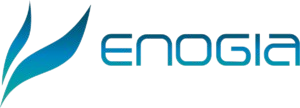

Case study: a French micro-turbomachinery manufacturer adventure in Japan

ENOGIA is a French SME specializing in the design and manufacture of micro-turbomachinery. Founded in 2009, the company has developed two main business lines:
- ORC Business Line: The Organic Rankine Cycle (ORC) systems convert heat into electricity across five sectors: geothermal, biomass, industrial waste heat, gensets (generators/engines), and maritime applications. ENOGIA is one of the few companies globally offering ORC modules capable of converting waste heat from as low as 70°C up to 200°C into clean electricity.
- Micro-turbomachinery Business Line: This line focuses on custom-designed and manufactured micro-turbomachines not readily available on the market. For example, if a client needs a specific compressor with defined performance, dimensions, or regulatory specifications, ENOGIA can handle everything from initial requirement analysis to design, prototyping, and small-scale production. This line supports other companies in developing new products for markets they aim to access or expand into but lack the appropriate technological solutions.
Why Japan?
ENOGIA’s market strategy involves assessing two key elements when entering a new market: the presence of target applications and the economic environment. Since ENOGIA’s products generate electricity, the profitability of its solutions is directly linked to electricity prices—the higher the price, the greater the return. Japan offers significant economic benefits, including a Feed-in Tariff for electricity generated by ORC systems using geothermal heat and zero tariffs on ENOGIA’s power plants, enhancing the value proposition for Japanese clients.
Mr. Belaissaoui, ENOGIA’s Sales Director, noted that Japan’s energy needs align closely with ENOGIA’s offerings: “Japan is a wonderful market for us because, among the five areas of application, the country has substantial geothermal heat, supported by the onsen industry, a significant amount of industrial waste heat, and, though less so, biomass. Japan’s island structure also supports the use of gensets on off-grid islands that rely on generators for power.”
With four of its five primary applications present and favourable economic incentives, Japan is a highly strategic market. However, understanding its market structure and identifying suitable partners took time and effort.
The EU-Japan Centre’s Support
After years of exploring the Japanese market, the company participated in the EU-Japan Centre’s Green Business Mission in 2024, which proved to be a catalyst for growth. Mr. Belaissaoui highlighted how “the Centre’s support was invaluable and came at a crucial moment. We were in the process of finalizing partnerships with key players in both the geothermal and industrial waste heat sectors. These potential partners were themselves in an exploratory phase, gauging the market’s demand and traction. The mission allowed us to engage with local partners and end-users concurrently, enhancing our network and relationships.”
ENOGIA finalised a distributor partnership agreement with Energex and another with Matsubo Corporation, a subsidiary of Kobe Steel Ltd.
Challenges in the Japanese Market
ENOGIA encountered two main challenges as it prepared to enter the Japanese market:
- Navigating Regulatory Requirements: Understanding Japan’s specific electrical and regulatory requirements for ORC power plants proved challenging. It was difficult to connect with the right regulatory bodies and obtain comprehensive information on the requirements. Guidance was needed to understand the regulatory framework.
- Identifying the Right Partners: Finding a partner in Japan was not inherently difficult, but identifying one who could effectively represent ENOGIA’s technology and reach target markets was more complex. According to Mr. Belaissaoui “the challenge is not finding a partner but finding the right one who understands the technical aspects of our product, targets the appropriate markets, and has strong sales performance. I like to think we’ve been fortunate in this regard.
Advice to European SMEs that want to break into the Japanese market
EU companies aiming to enter the Japanese market should approach it with patience and adaptability. Rather than imposing their own methods, it is often more effective to adjust business models to fit Japanese practices. This strategy has proven essential for success in Japan and has been a valuable lesson for ENOGIA.
This article is based on an interview with Mr. Nordine Belaissaoui, Sales Director, ENOGIA; Participant in the EU-Japan Centre’s Cluster Support Mission for Green Tech in 2024.
More case studies and success stories from former beneficiaries of the EU-Japan Centre’s training programmes or business support missions to Japan are available on our dedicated website.
Published: December 2024
